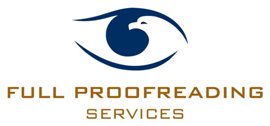YOU DON’T HAVE TO BE PERFECT TO BE AMAZING!

Q: What do an editor, a proofreader and a stylist have in common?
A: Our job is to make our clients look amazing!
If you’re a writer, your reputation depends on the quality of your book. Poorly presented books attract bad reviews, which affect sales.
For businesses and other organisations, the quality of your service might be judged on any written material, be it your website, magazine, blog articles, annual reports, brochures or other advertising.
Not far from where I live, a local preschool has a public noticeboard strategically placed on its boundary wall at a roundabout on a busy road. Drivers entering and exiting the roundabout cannot fail to see it and each week an inspirational, childhood-related quote appears. I look forward to these little nuggets of wisdom; they lift my spirits as I go about my mundane routine.
A recent weekly offering was: YOU DON’T HAVE TO BE PERFECT TO BE AMAZING!
I ruminated on this as I drove home, trying not to curse other drivers’ IMperfect, UNamazing driving skills …
You see, like all editors and proofreaders, I strive for perfection. It’s a given. One hundred per cent, error-free results. Be it a client’s book, magazine, brochure or report, we do our utmost to ensure we do the best job possible to make it amazing. However, the outcome of the project depends on a number of factors:- the size and complexity of the project
– number of pages/word count
– layout/ease of reading
– format for mark-up (hard copy, Word, PDF)
– whether references and/or fact checking are required
– if you need to create or check an index
– whether there are captions, illustrations, graphs or tables to check
- the quality of the writing
– working with one author who has solid writing experience
– working with multiple authors who have varying levels of writing experience
- the style guide/sheet
– whether one is provided with clear instructions on the style and language to apply
– where one is not provided, the editor needs to work with you to create one
– applying style can be time-consuming when there are multiple authors with their own styles.
As an editor or proofreader, the following can also affect the outcome of your work:
- Time or budget limitations.Although you always edit and proofread to the best of your ability, working ‘under the pump’ or to a limited budget is not always conducive to a perfect outcome. Communicate with your client if their deadline or budget is unreasonable, and explain how it can affect the outcome.
- Subjectivity or personal style. No two editors will mark up a piece of writing the same way. Typos and spelling mistakes aside, correcting grammatical or syntax errors is often affected by subjectivity, training and personal preferences. An awkwardly constructed sentence can be rewritten a number of ways.
- Understanding the client’s needs.To ensure the best outcome for your client, you first need to ask questions. Lots of them. Often, they are things that have not occurred to the client: Which version of English do you wish to use (there’s currently a mix of both)? Do you prefer a minimalist approach to punctuation? Who is your audience – what are you trying to achieve?
Understandably, clients have high expectations. If you’re a writer, your reputation depends on the quality of your book. Poorly presented books attract bad reviews, which affect sales. For businesses and other organisations, the quality of your service might be judged on any written material, be it your website, magazine, blog articles, annual reports, brochures or other advertising.
An experienced editor can turn almost any piece of writing into something beautiful to behold, but it might require thousands upon thousands of edits. A sharp-eyed proofreader then catches the tiniest of errors that slip past the eyes of the writer and editor, preventing embarrassment to the client and even, potentially, financial loss or legal liability.
When you think about what a raw piece of writing looks like, and what it becomes – that’s when you realise that editors and proofreaders are amazing – even if we’re not always ‘perfect’. After all, we are human!
I would like to thank @Susie Nekula of Wise Words, Polished Proofreading, for her invaluable, professional assistance with this article. It just goes to show, editors need editors to help them with their writing!
